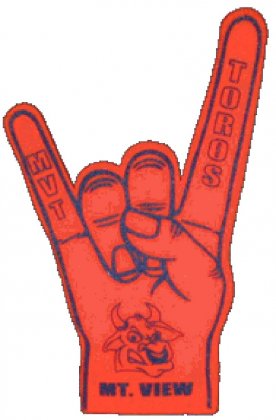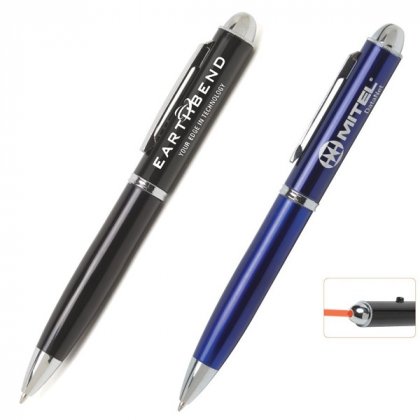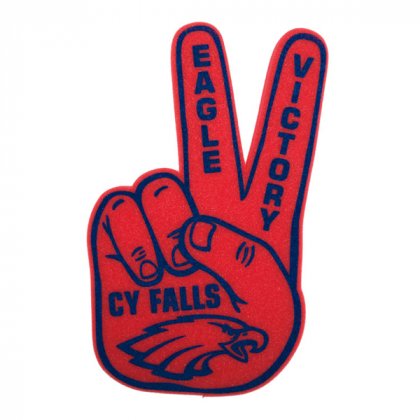Avoid Faux Paux with the 4AllPromos Global Body Language Guide

As the global economy becomes more, well, global, fluency in international language has never been more important. Perhaps even more important is having a working knowledge of the body language of whatever country you're planning to visit or establish a working relationship with. People may not know you're an out-of-towner before you begin to speak, so the ways in which you carry yourself and the subtle nuances of your movements and expressions have the potential to make a very bad impression, very quickly.
What is common and seen as innocuous or even admirable here in the USA can be seen as downright vulgar in other parts of the world. That's why we've assembled this list of 10 types of body language that are considered offensive and have very different meanings in other countries. Read through and remain aware of all of these potential body language mistakes when interacting with clients.
1. Thumbs Up Sign
Giving the old thumbs up sign is one of the most common ways we have to tell someone you're happy or approve of something without having to say anything. It's also a sign of assurance and a way to let everyone know that things are all right and to project confidence. For evidence, we cite our promotional thumbs up stress toy, pictured below:

You would think that this would be a great promotional giveaway item for nearly any kind of business. For the most part, you'd be right, just so long as you're interacting with an audience that uses the thumbs up sign in the same way we do. However, when you get this one wrong, it will not bode well for future relationships.
Why? The answer is rather simple. In Italy, Afghanistan, Iran, and Qatar, this gesture means nearly the opposite of what it does in English. Remember those old "Make 7-Up Yours" commercials? Well in these countries, that's what the thumbs up means, minus the "Make 7" part. Now do you see why these wouldn't exactly reduce stress in some cultures? Also, it can be a bit confusing, as in Germany and Hungary it is a symbol for the number 1, while in Japan, it means the number 5.
2. Giving the Middle Finger
Here's an example of something that's found to be offensive in most English speaking countries, but has a completely harmless meaning in other lands and in different cultures. This one is pervasive enough that we don't need to tell you the meaning of this particular gesture; if you've grown up in the USA, you undoubtedly already know. It's a symbol that creates enough ill will that some opposing fan bases like to present it en masse toward their most embittered rivals. Our personalized middle finger foam mitts are actually quite popular for just that reason.
If you venture to China and happen to see people apparently giving you the finger, do not take offense. It's just the customary finger for pointing, just as the index finger is in the USA. Instead of seeing red when this happens, slow down a bit and see what it is that the person gesticulating to you wishes for you to see.
Our foam middle finger spirit fingers, pictured above, would cause more confusion than animosity/rah-rah team spirit if passed out in a Chinese stadium or area. Most likely, they'd just leave everyone in the audience looking upward and wondering what it is in the sky that your company finds to be so fascinating. You'd do the same if you saw an upward pointing index finger army. It would send the wrong message, albeit a mostly harmless one.
Did you know that Mister Rogers once flipped the old bird on national television? Sure, it was a needed part of the "Where is Thumbkin" song, but still, it's hard to imagine our favorite neighbor doing so. That's why we're treating you to the clip below.
3. The OK Sign
The "ok" hand signal is one you're by no doubt familiar with. When used in the USA, it's meaning is pure and clean. Like the thumbs up sign, it's a way of letting people know all is well or that you're pleased with their efforts. It's a popular way to cheer on the home crowd at most any sports game, which is why our promotional foam OK sign hands are some of our most popular promotional products for schools and sports teams.

This is a symbol and saying that originated with supporters of Martin Van Buren, the eight president of the United States, and the first president to be born after we officially became an independent nation. He was from Old Kinderhook, New York, and his hometown became his nickname and a catchphrase among his supporters. However, in other nations, this little tidbit is far lesser known. In many other nations, this is basically the equivalent of giving someone the finger here in America.
Speaking of American presidents, on a visit to Brazil in the 1950s, then Vice-President Richard Nixon stepped off of a plane, holding up both hands with the OK sign. Unfortunately, Brazil is one of the countries where this is an obscene gesture, and it wasn't exactly appreciated. This can also be the case in different countries across Latin America.
Less than a decade later, President Kennedy would commit a slightly more comical error when visiting Berlin and proclaiming, "Ich bin ein Berliner." He essentially meant to say that he was one with the people of Berlin, but by leaving in the article "bin", he in effect told the crowd that he was a jelly doughnut. Some dispute this as a false claim and others swear it to be true.
4. The Moutza and the Five Fathers
In the USA, there's nothing particularly offensive about holding your palm up and out, or using it to indicate the number five by holding up all of your fingers. As the case with verbal language and localized idioms, physical language can also vary greatly from country to country and from culture to culture.
This results in the palm of your hand having the potential to become a pretty big troublemaker in some places. While our High Five promotional highlighters with logo imprints are great items that are highly popular with their recipients, there are some countries you won't want to advertise them in or send them to.

One such country is Greece. In Greece, holding the palm out flat with the fingers extended is known as the "moutza" or "mountza". In its most mild form, it's viewed as being akin to the '90s "talk to the hand" gesture. In a more sinister context, it more or less means that you wish to rub feces in the recipient's face. Most people wouldn't like to be on the receiving end of such a message.
It's also not exactly a great way to market your products. It's also seen as highly offensive in some Arabic nations, where it is known as the "five fathers" symbol. Flashing this means that you're accusing the person with whom you're interacting of having a mother who is a very licentious woman. In Armenia, it's a way of telling somebody you're sick of them, but strangely enough, it is used almost exclusively by mothers and grandmothers. Making this symbol in Mexico means you're threatening swift and certain violence. It's easy to see how this could quickly make someone feel uncomfortable while talking at a meeting or in any other situation.
5. Hook 'em Horns aka Metal Sign
Simultaneously holding up your index and pinky fingers while keeping the others folded downward is something we see people do all the time. "Flashing the horns" is something nearly all metal fans do while headbanging to the music of their favorite bands. It's also a popular sign in the world of sports, having originated as a sign to cheer on the Texas Longhorns football team. Since then, it's been adopted by many other teams and that's why our wholesale hook 'em foam hands are some of our most beloved promotional school spirit items.

In various parts of the world, this gesture can mean various offensive things. Some consider it to be a symbol of devil worship, and this can create some very unpleasantly awkward moments in religious settings. In many parts of Southern Europe, this sign is called "il corno" and means that a man is a cuckold. In other words, if you flash the horns to a guy in Italy, you're basically telling him that his wife cheats on him. He's probably not going to like that very much.
In Russia, it's a symbol that is used to express disdain for the nouveau riche, the uneducated, and those with inflated egos. Offering a product in this shape in any of those countries & cultures won't leave your business in good standing, no matter which team you're rooting for.
6. Pointing
At some point during your childhood, you were likely admonished with the words, "it's not polite to point." While it's true that most Americans don't like being pointed at, it is considered far more offensive and can lead to scalding rage in other parts of the world.
In many African countries, it is a gesture that is solely used for non-living, non-sentient objects. To use it toward a human is one of the ultimate signs of disrespect. Your best bet in these nations is to point with your whole hand when indicating direction. Still, you may want to be careful how you do that, because if you spread your fingers out, you can end up giving the five fathers or moutza that we discussed earlier. That won't exactly sit well either.
The personalized laser pointer pens on our site are promotional office supply products for businesses that are among our best sellers. When ordering & using them, you'll want to make sure that they're not going to be traveling to a place where they can transform from promotional to profane.

7. Nodding for Yes and Shaking for No
Some forms of body language are nearly universal in meaning, and the whole nodding your head to say yes and shaking to say no would be filed in this group. Note however that we said nearly universal. In some areas of the world, the process is reversed. While it isn't offensive in and of itself, it can lead to some confusing situations in non-verbal conversation if you aren't aware of it.

In Greece, Bulgaria, and Albania, the nations whose flags are pictured above, nodding means "no" and shaking means "yes". If you're ever visiting or doing business in these countries, this is an important fact to remember. We also imagine it has to make bobblehead dolls a bit less effective in promoting one's business.
8. Showing the Soles of Your Feet and/or Shoes
While there are certainly people in America who spend a lot of time with shoes on their minds, few would ever be offended by seeing the sole portion of another's footwear. When running, sitting with one's legs crossed, stretched out on a couch, or sitting on the floor, the soles of your shoes are going to be visible.
In some countries, this can create a big problem. In many Arabic nations, as well as in regions of India, showing the soles of one's shoes or the bottom portion of one's feet is among the rudest acts that can be committed. In these areas of the world, feet are considered to be the most unsanitary body part, even trumping the left hand. Avoiding this act is of great importance. That's why throwing a shoe at someone is among the ultimate insults, as former President George W Bush found out.
While it seems to be a lesser known incident, perhaps due to the offended party's poor aim, former President Obama was also the recipient of a shoe attack.
If you ever find yourself visiting India or the Middle East, be sure to remove your shoes before entering anyone's home. Keep your socks on though and be sure to avoid putting your feet up on furniture, as the feet themselves are seen as even more offensive than the shoes that contain them.
9. The "Victory" V
When you see someone holding up their hands with their index and middle fingers raised and parted, you're most likely watching someone celebrating the thrill of victory. After all, it forms a letter V. This is a gesture that is commonly seen not just in the United States, but in many other nations as well. It can also look like a peace sign.
All three of these are perfectly fine and inoffensive in most areas. Still, these aren't universal body language gestures and this is one that can be seen as very rude in some circles. Our custom imprinted Victory V foam hands, which are a top selling school spirit promotional product, might not be the best idea if you're looking to stir up crowds in the UK, Australia or New Zealand.

So we've mentioned that this might not be a the best promotional product for schools in the UK and in Oceania. We should probably explain why. In the UK, Australia, and New Zealand, this symbol is called "the fork" and more or less has the same meaning as giving the middle finger does here. It's considered especially bad when flashed toward a work, school, or military superior. It's so reviled that in Scotland, two members of the national soccer team were permanently banned from competition after making this gesture toward the opposing team's bench. It's a prime example of one of the nonverbal cues that most people simply won't accept in different cultures.
10. Making Eye Contact
If you're reading this article and come from the United States or Canada, you've most likely been told ad nauseam that the best way to make a good impression is a firm handshake and steady eye contact. Eye contact establishes a trust factor and connotes honesty, sincerity, and confidence in some countries. In many cultures, it conveys something entirely different and is one of the most common mistakes Americans make abroad in terms of body language.
In China and Japan, it can be seen as an act of aggressive body language and one that is blatantly disrespectful, especially when displayed toward an elder. It is common practice in Japan for a child to focus their eyes downward when being spoken to by a parent as a sign of respect. If you can't break your tendency toward intense eye contact, it might not be a bad idea a business insider to invest in some wholesale logo printed sunglasses when traveling to the Far East. As can be seen below, their dark lenses do a good job of obscuring the view of one's eyes.

Avoiding International Body Language Mistakes & Non Verbal Communication Errors
Now you know what not to do, you're ready to begin your international globe-trotting business interactions while making the best impressions possible. Showing you've done your homework and have made the effort to know the unspoken laws of the land will make both you and your company look very good to your hosts abroad.
Always be sure to watch closely for body language differences when visiting another country or engaging with someone from another culture. When you know what to do, you can be confident and help to make others feel comfortable. That's a can't-lose combination when trying to interest others in your products and services.
Are there any forms of body language that we left out or could've done a better job of explaining? Contact us and let us know!






